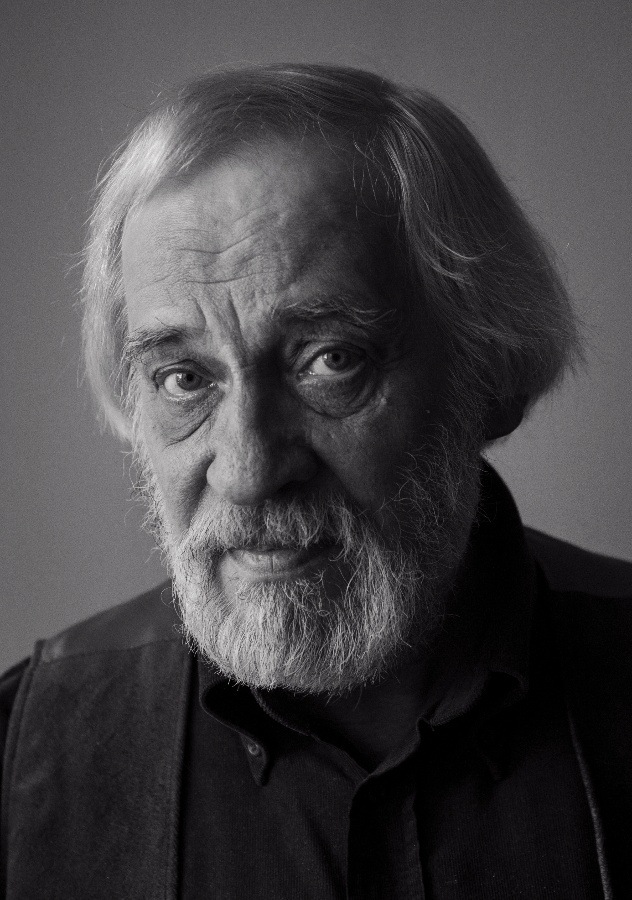Karel "Fidelius" PALEK (*1948)
- Read the story (PDF, 0 kB)

Fidelius
“The editorials in Rudé pravo [until 1990 the Communist Party of Czechoslovakia’s main instrument of propaganda – ed.] raised the issue of Communist language as a subject for reflection of current life experience. What function does that language fulfil? (…) What does it actually speak about? Does it speak about anything at all? Do all of those – often bizarre – linguistic expressions delivered by Rudé Pravo make any sense? I soon realised that a certain order prevailed in Communist speech, that it really was speech about a certain world, albeit an ‘imaginary’ world, meaning a certain ideological depiction of the world. So then I began looking into the content of the basic expressions on which that language was built, how they related to one another, their ‘principles of construction’. My most powerful research experience was the realisation that the Communist regime provided a perfect picture of its nature within its language,” wrote Petr Fidelius in 1997 in the foreword to his book The Language of Communist Power. Petr Fidelius is the pseudonym of Karel Palek, the only academic in the Czech lands who has systematically analysed the semantics of Communist language, what’s more doing so when it was still the official language.
The linguist, editor, essayist and critic Karel Palek was born in Prague on 15 December 1948. After his philology studies at Charles University’s Faculty of Arts (1967–1974), he worked as a stoker at a hospital until 1990. In that way he followed one of the typical dissident “alternative workers’ professions” after reaching the rational conclusion as a student that, if he wished to maintain academic and authorial freedom, he had no alternative under Czechoslovakia’s normalisation regime. He soon began publishing in samizdat. “As soon as I completed my linguistics studies at the start of the 1970s it was clear to me that I couldn’t think about an academic or teaching career. The price I would have to pay was to my mind intolerable. So with a bit of a head start I took myself off to a boiler room. There was enough time to read there, so I could read Rudé právo more closely than others,” he recalled later.
Czech readers don’t need to be told but foreigners might: Independently studying such a subject as Communist language, analysing an aspect of Communist ideology other than in the official spirit, was only possible in private prior to 1989; an academic could publish the results of such work only in samizdat or in exile and the personal risk was sizable. In 1978 Palek wrote the linguistic study The People, Democracy, Socialism. Two years later his book Two Papers on the Study of the Terminology of Contemporary Official Propaganda (containing the first, albeit reworked, study and the new text The Fairy Tale of Stalin in the Context of Contemporary Official Propaganda) came out as the 204th publication in the Padlock Editions samizdat series. Both texts, supplemented by the essays (again published under the name Fidelius) On the Treatment of Words and On Totalitarian Thinking were published without authorisation in 1987 under the title Language and Power by the Munich exile publishers Arkýř. In 1989 (when perestroika had been taking place in the USSR for several years under Mikhail Gorbachev) he brought out two studies under the collective title The Mirror of Communist Language: Perestroika in the Mirror of Communist Language and Socialism in the Transformations of Time (published in magazine form in 1994). In the end the authorised studies gave rise to a book, The Language of Communist Power, which was issued by the Prague publishing house Triáda (first ed. 1998, second 2016).
A brief summary of the conclusions of Palek’s linguistic research is impossible. It is an extensive academic study that explores the Czechoslovak Communist system from the perspective of its specific language, in which terms like “the people”, “democracy”, “the party”, etc., mean something entirely different than in regular Western liberal discourse. For more readers are advised to turn to the above-mentioned Czech publication of his book (or the French edition L´esprit post-totalitaire (Paříž, Bernard Grasset, 1986)).
In 1982 Karel Palek also contributed to the editing of the samizdat Kritický sborník (KS). It was an important samizdat (dissident) magazine focused, as the title suggests, on criticism and aesthetics. It arose for a simple reason: from roughly 1969, dozens of writers were barred from officially publishing in Czechoslovakia and their literature came out either in samizdat or in the West. However, without free criticism, no culture can develop well, not even underground culture. The first edition of KS came out in spring 1981. The main editing work was by literary critic Josef Vohryzek. “I began as a language editor at Kritický sborník. However, everything then was so ingeniously conspiratorial that I didn’t know the whole context,” Palek said later of his initial involvement. When Vohryzek had to withdraw after some time because of illness, KS was published by the literary critic Jan Lopatka, the journalist and translator Luboš Dobrovský and the Evangelical clergyman and translator Miloš Rejchrt. German Studies expert Jindřich Pokorný also contributed to shaping the magazine and Palek’s own contribution also grew steadily. After the fall of the Communist regime KS began coming out in print form. From 1990 to 1993 Palek was executive editor; following Lopatka’s death (1993) he became the magazine’s editor.
Alongside linguistic studies, Palek published other texts in samizdat, such as a critical examination of the concept of the underground in the essay A Shift Along a Slanting Surface (1981). After 1989 he produced work of various kinds. He published a number of essays on grammar, prepared for publication and wrote commentaries on collections of Ferdinand Peroutka’s political and literary journalism (under the pseudonym Daniel Bohdan) and in 2000 issued on the TORST imprint Critical Essays, an anthology of such writing he had published as both Palek and Fidelius.
Text by Adam Drda